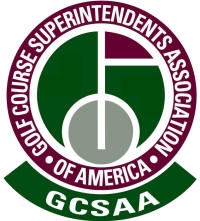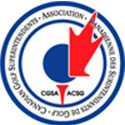Equipment Management: A European Perspective
Published: Golf Course Industry Magazine
Year: March 2009
Title: Equipment Management: A European Perspective
During the past 10 years in this business, I’ve looked at managing a fleet of equipment pretty much the same way. I learned the proper way to manage a facility and the equipment within it while attending Lake City Community College in Florida.
Recently, I traveled to England with the
IGCEMA. I toured golf courses, football fields and the Ransomes/Jacobsen factory, and attended the BTME conference in Harrogate. This wasn’t my first time to England; however, it was the first time I was able to really grasp how things are done on the other side of the pond.
We learned that, while the equipment may be the same, the way we take care of it is extremely different. In England, only about 20 percent of golf courses employ a full-time technician. Most of the golf courses use equipment distributors to service and repair their equipment. While that seems crazy to us here in the States, there are many more distributors throughout England compared to the U.S. Most courses are within 10 to 15 miles from a distributor. My first thought was “What happens if a piece of equipment you need to use goes down?” The response was, “We wait.” I wouldn’t want to be the first to try that concept here in the States.
Our mentality is a bit different. We want courses kept nice and trimmed. The British want courses to be overgrown and look natural. We need things done now; they don’t mind waiting, knowing it’ll take days or even weeks to get something done. We also learned their care for the environment is held in high regard. We visited Ipswich Golf Club, which employs a full-time person to handle the club’s environmental aspects. One guy on a staff of eight spends all his time looking out for the environment on the golf course. This is an example of how much they value environmental stewardship.
Our standard of maintaining equipment is much higher than in England, but it doesn’t mean they don’t want to change that. The biggest issue for them is the cost of having a full-time employee in the workshop. By having a technician on staff, they may have to drop a maintenance crew member, which could lower the staff to an ineffective level. This fact is another reason they rely on the equipment suppliers for servicing and repairs.
Looking at the overall picture, I’m not sure how cost effective it is not to employ a full-time equipment technician. The English fleets of equipment are much smaller than ours, and there’s less to maintain, so this may be the factor they take into consideration when deciding whether to have a technician. Also, there are some courses that will employ a technician part time or borrow equipment from each other to accomplish tasks. So while they continue to produce outstanding golf courses, it’s done differently.
We also visited a football (soccer) club in Ipswich and met with Alan Ferguson, the head grounds man. Ferguson – who has experience working on golf courses, including St. Andrews – is one of the top grounds men in Europe. He explained to us how Europeans maintain their football fields, which made me feel more at home. When we visited him, it was dark, and he was drying the field to get it ready for the next night. The long hours and high expectations seemed to match well with how we look at golf in the U.S.
We spent the final three days of the trip at the BTME conference where the IGCEMA had a booth at the trade show. We talked to greenkeepers and technicians from throughout Europe who seemed excited about the possibilities of what an international technicians’ association could help accomplish in Europe. This is a much different attitude than we experienced one year before at the GIS. The folks we talked to were excited and driven to spread the word to get more people involved. I was impressed to see such interest in a country where technicians are a luxury.
It’s great to be able to look at alternatives to maintaining golf courses. While some methods are different than others, we still manage to produce outstanding golf courses.














0 Comments
No Comments Yet!
You can be first to comment this post!